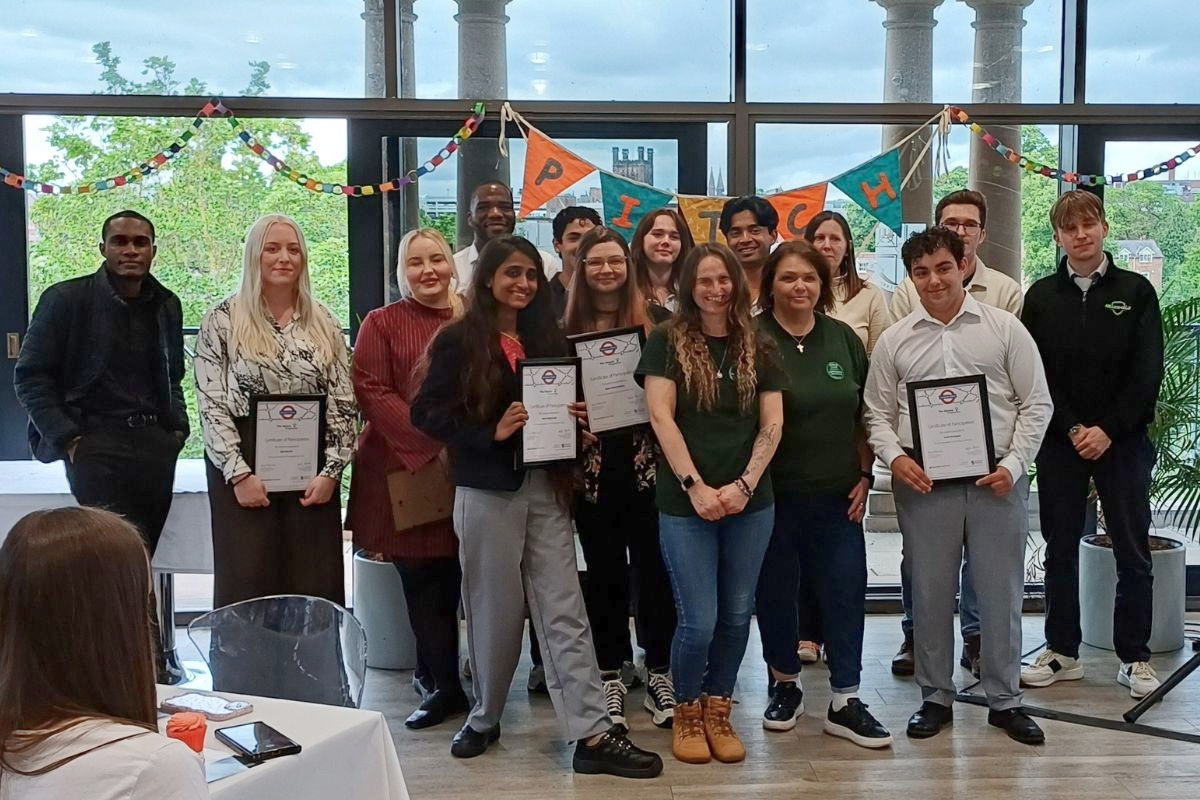YouGov-Studiosity study highlights university students’ positivity on preparation for employment

Two thirds of UK students feel that their degree is developing the right skills they will need to succeed in their future job, according to research undertaken by YouGov and Studiosity.
Overall, 65% of students are positive about their preparation for employment, and 81% feel confident they have strong English writing and communication skills needed to apply for/get a job, as highlighted in the final edition of the UK Student Wellbeing Survey 2024 released today.
Across all subject areas, students representing 149 higher education institutions in the UK are highly confident that their degree is developing their necessary skills, and this is particularly significant for medicine (81%) and nursing students (79%).
Half of the 2,422 UK students surveyed say they feel confident they will get a job related to their degree within six months of graduation, and 26-33 year old students are most confident about finding employment within this timeframe (61%).
To support their studies, 53% of students have used their university academic support services, and 66% of students with a high pass rate (85-100%) attended a workshop to improve their referencing skills compared to 55% with a lower pass rate (50-64%).
The majority of students (58%) have learned about academic integrity: what it is, how to avoid plagiarism and where to get referencing help. When looking for help with referencing, almost a third of all students’ first choice preference is to ask their lecturer (31%). However, 46% of students also said the provision of personal, 24/7 study and assignment support would improve their overall sense of belonging.
Meanwhile, 67% of students report that offering the right course was the primary reason for choosing their university, and university advertising was the top influencing factor when choosing a university for 72% of all students. When asked, nearly half of all students (49%) said that the global ranking or the university’s reputation was the most important factor.
The full UK Student Wellbeing Survey 2024 report, which is now available to download here, was part of global YouGov research among 10,189 responding students, which also spanned Australia, New Zealand, Canada, USA, Singapore and the UAE. The full survey focused on topics such as experiences of study stress, reasons for university choice, belonging, peer connection, institutional support, and future employability.
Writing in the final report, Professor Rebecca Bunting, Vice-Chancellor and Chief Executive of the University of Bedfordshire, and a Studiosity UK Academic Advisor Board member, reflected on how student wellbeing is very much at the heart of universities’ concerns, and support for wellbeing takes many forms across the sector.
She highlighted three key messages from the students surveyed, saying that
“each serves as a reminder of what matters to students and how challenging their lives can be”.
“Students tell us that they need to work, and therefore need more flexibility and support to help them to thrive,” Professor Bunting commented. “The survey shows the extent to which students need to take paid employment during their studies, with nearly three quarters of students in part-time and a quarter in full-time work. Inevitably, balancing work and study is a cause of stress and this is an increasing trend.
“Nearly two thirds of the respondents felt that their university is not adapting quickly enough to provide AI tools for learning support. Universities are very much alert to the rapid advance of AI and its impact on student behaviour, particularly in relation to assessment, but its potential for enhanced pedagogy and learner support is less well addressed.
“A sense of belonging is key to student success. Students report that their experience of feeling stressed is significantly worsened if they also feel ‘adrift’, that they don’t belong in their university. They tell us that more personalised, 24/7 assignment and study support would improve their sense of belonging. Confidence in being able to ask for help; flexibility of study; access to mental health support and being able to connect with peers are also important considerations raised in the responses.”
Isabelle Bristow, Managing Director for UK and Europe at Studiosity, added:
“In partnership with many UK institutions, the Studiosity team continues our core mission of increasing life chances for all students. In this spirit we are committed to making this contribution to the sector and putting the spotlight on student wellbeing again this year.”
Studiosity, whose ethical writing feedback and study support service is trusted by more and more universities and two million students, has recently launched new AI learning technology Studiosity+ to support all university students’ academic literacy skills.











Responses